Languages

Thursday, March 28, 2013
Journalism and Communication for Global Change
Women in Politics

LILONGWE
Treason Case May Fuel Unrest in Malawi
Malawi’s first-ever tripartite elections in May 2014 will be a litmus test for President Joyce Banda, who is faced with an opposition majority in parliament, soaring food prices, and a potential treason trial.
Digging Deep for New Conflict
If Herod the Great was a controversial figure of his time, 2,000 years on the controversy isn’t about his legacy; it’s about who holds the rights to excavate and preserve his artefacts.
Voting Will Change the Lives of Zimbabwe’s Women
“Ten reasons why women must vote ‘Yes’ for the draft constitution…” says the Constitution Select Committee’s campaign radio jingle that plays over the airwaves in a grocer’s store at Mukumbura border post business centre on Zimbabwe’s northeastern border with Mozambique.
A Political Tug-of-War Over Militarism and Gender Violence
When the largest single gathering of women met at the United Nations in February last year, the adoption of a future plan of action was undermined by rigidly conservative governments opposed to women's reproductive rights - largely misinterpreted as a right to abortion.Nobel Laureates Back “Strong, Autonomous” Inter-American Rights System
Six women recipients of the Nobel Peace Prize on Friday lauded the work of the Inter-American Commission on Human Rights (IACHR), offering additional high-level support for the institution just weeks ahead of a critical vote on a reforms process that many worry could irreparably weaken the Inter-American system.
Q&A: “A Pastoralist Woman Is Like a Working Machine”
"In some communities, you can’t talk about violence against women," says Agnes Leina, executive director of Il'laramatak Community Concerns (ICC), a group that promotes the human rights of pastoralist communities in northern and southern Kenya, with a special emphasis on women and girls.
Millions of Kenyans Vote in Historic Election
On Monday, Mar. 4, Betty Amollo was one of the millions of Kenyans who turned out in large numbers to cast her ballot in the country’s first general election since the 2007 disputed polls left almost 1,200 people dead and displaced 600,000 in the resultant inter-ethnic violence.
Q&A: Without More Women, Media Cannot Tell the Full Story
The fact that women are underrepresented in the media industry should surprise few. The severity of this imbalance and its consequences, however, are less obvious. In a new report, the Women's Media Centre exposes these disparities and their effects on society.Reframing Gender, from Chaos to Creativity Post-2015
The U.N. has opened up public platforms to engage the world on how best to replace the expiring Millennium Development Goals (MDGs) and frame a new development agenda, post-2015.
Q&A: No “Us” and “Them” in Fight for Women’s Rights
As the earthquake in Haiti has proven, even more important than a recognised name or robust physical presence is the quality of services delivered by humanitarian relief organisations.
Women Struggle for a Place in the Pacific
Women face greater odds in achieving equal political representation in the Pacific Islands than in any other region of the world, holding just 3 percent of seats in national parliaments, compared to 20 percent in Sub-Saharan Africa and 18.5 percent in South East Asia.
Kenya’s Electoral Opinion Polling Marred by Suspicion
When Kenya’s only female presidential candidate, Martha Karua, dismissed electoral opinion pollsters who claimed that she stood a mere one percent chance of being elected to office, many said she did so because the results had not favoured her.
‘Marks of Manhood’ Fuel Gender-Based Violence
Some of the most harrowing cases of gender-based violence Kathryn Bolkovac came across while working as a U.N. human rights investigator in Bosnia involved a perpetrator dubbed “the Doctor” by the women and girls he abused.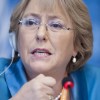
OP-ED: Making Cities Safe for Women and Girls
There is no city or country in the world where women and girls live free of the fear of violence. No leader can claim: This is not happening in my backyard.
The Open and Rocky Road Post-2015
What values does a Yemeni journalist who fuelled the Arab Spring hold in common with a former principal of the U.S. National Security Council? And how in turn will they see eye to eye with a Jordanian queen, or the president of Indonesia?Next Page »










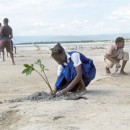


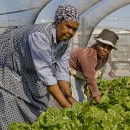







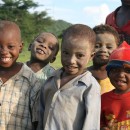
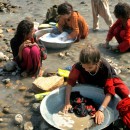
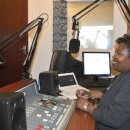







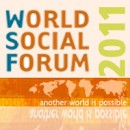







IPS on Facebook